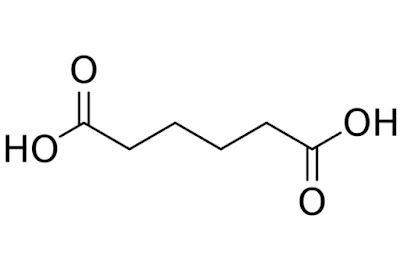ERA-MBT 1st Joint Call – Biorefinery processes for marine biomaterials
The Marine
Biotechnology ERA-NET (ERA-MBT) is
an action funded under the EU FP7 program and its vision is to support Europe’s
marine biotechnology community to participate in an enterprise-driven network
that adds value to marine biological resources in ways that nurture and sustain
the lives of European citizens. As a part of the activities to make this vision
reality, ERA-MBT plans to launch three transnational calls. The first one is
focused on the development of sustainable biorefinery processes ("The
development of biorefinery processes for marine biomaterials") and it is
already working. The call is an initiative of 14 funding organizations from 11
countries. Partnering between at least 3 different countries resulted in 37
consortia and 194 participants, of which some are also from outside the call
partnership.
Six projects have
been selected to be funded with a total budget of more than € 8 million. Here,
the most relevant information about those projects is summarized (complete
factsheets are available in the web page of ERA-MBT):
Mar3Bio
(Biorefinery and biotechnological exploitation of marine biomasses)
Total costs: € 3.378.920 / Funding granted: € 2.181.032.
Duration: 3 years (2016-2018).
Scope and
objective: The marine biomasses to be used in Mar3Bio are brown
algae and crustacean byproducts. The main objective is to advance technology
beyond state-of-the-art to increase the yield and quality of the products arising
from early process streams and modify selected fractionated biomolecules to
high value products.
Consortium: SINTEF Materials and Chemistry (Norway,
Coordinator), Royal Institute of Technology (Sweden), Norwegian University of
Science and Technology (Norway), University of Trieste (Italy), FMC Biopolymer
AS (Norway), MATIS (Iceland) and National Institute of Chemistry (Slovenia).
MARBioFEED
- Enhanced biorefining methods for the production of marine biotoxins and
microalgae fish feed
Total costs: € 749.949 / Funding granted: € 749.949.
Duration: 3 years (2016-2018).
Scope and
objective: The focus of this proposal is to isolate large quantities
of biotoxins using enhanced biorefining methods for the preparation of
reference materials and to allow for research to be conducted on the effects of
biotoxins on other important aquaculture industries. Further work will focus on
enhanced production of microalgae as fish feed.
Consortium: Marine Institute (Ireland, Coordinator), Norwegian
Veterinary Institute (Norway), Instituto Español de Oceanografía (Spain), National
Research Council Canada (Canada) and Neoalgae Microseaweeds products (Spain).
MicroMBT
- Discovery and training of microbial biocatalysts for biomass conversion using
moving bed technology (MBT)
Total costs: € 1.832.446 / Funding granted: € 1.503.285.
Duration: 3 years (2016-2018).
Scope and
objective: A culture collection of >100 genome sequenced
marine bacteria from the Arctic region, and the Moving Bed Technology (MBT)
will be used as tools to increase the value of marine rest raw materials. The
bacterial communities will be specifically trained into microfactories for
conversion of low value rest-raw material from the fish industry.
Consortium: UiT-The Arctic University of Norway (Norway,
Coordinator), Norwegian Institute of Food, Fisheries and Aquaculture Research (Norway),
Instituto de Tecnologia Quimica e Biologica (Portugal) and Umeå University (Sweden).
NEPTUNA
- Novel Extraction Processes for mulTiple high-value compoUNds from selected
Algal source materials
Total costs: € 894.918 / Funding granted: € 759.976
Duration: 2 years (2016-2018).
Scope and
objective: Novel enzyme-based extraction technologies will be
applied to algal biomass. Algal extracts produced by enzymatic and traditional approaches
will be tested for multiple applications, concentrating on antioxidant and
antimicrobial activities with applications in food, cosmetics, animal health
(aquaculture) and personal/home care.
Consortium: National University of Ireland Galway (Ireland,
Coordinator), University College Cork (Ireland), Ghent University (Belgium),
Unilever (UK) and UiT- The Arctic University of Norway (Norway).
SeaRefinary - The Seaweed Biorefinery – for high value
added products
Total costs: € 2.607.074 / Funding granted: € 1.406.156.
Duration: 3 years (2016-2018).
Scope and
objective: SeaRefinery will develop eco-friendly chemical and
enzymatic processing technologies to extract and purify high value-added components
such as antioxidants, antimicrobial components and hydrocolloids from
cultivated seaweed species in an integrated biorefinery.
Consortium: Danish Technological Institute (Denmark,
Coordinator) MARINOX EHF (Iceland) (CyberColloids) Ltd (Ireland), SIOEN
Industries NV (Belgium), Centexbel (Belgium), Hortimare AS (Norway), ViVoX ApS (Denmark),
Cork Institute of Technology (Ireland).
ThermoFactories
- Thermophilic cell factories for efficient conversion of brown algae biomass
to high-value chemicals
Total costs: € 2.485.677 / Funding granted: € 1.981.507.
Duration: 3 years (2016-2018).
Scope and
objective: Four metabolically different environmental bacteria,
inherently suitable to harsh process conditions, will be engineered for
production of a number of industrially important platform and specialty
chemicals, including 1,2-propanediol, cadaverine, propanol and lycopene. At the
end of the project, use of all major carbohydrate fractions from brown algae
through integrated processing will be demonstrated at small pilot scale.
Consortium: Norwegian
University of Science and Technology (Norway, Coordinator), SINTEF Materials
and Chemistry (Norway), University of Iceland (Iceland), Lund University
(Sweden), Technical University of Denmark (Denmark), Matis Ohf (Iceland), Biotrend
SA (Portugal), SilicoLife Lda (Portugal).




